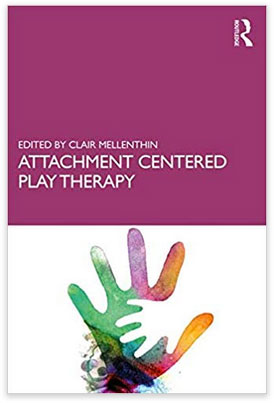Attachment Centered Play Therapy for Attachment Disorders
Attachment Centered Play Therapy offers clinicians a holistic, play-based approach to child and family therapy that is presented through the lens of attachment theory. Along the way, chapters explore the theoretical underpinnings of attachment theory to provide a foundational understanding of the theory while also supplying evidence-based interventions, practical strategies, and illuminative case studies. This informative new resource strives to combine theory and practice in a single intuitive model designed to maximize the child-parent relationship, repair attachment wounds, and address underlying symptoms of trauma.
 Order Now!
Order Now!>>>> $36.36
The result of this work is lasting change for families for generations!
In traditional child therapy, all of the training for clinicians and work done in the office focuses solely on the individual kid. We are giving children unrealistic expectations that they can be change agents in their family. We cannot expect the least powerful player to make long-standing improvements in the family unit and the dynamics that rule it. We are not addressing the important relationship of parent-child.

As children, we learn from our parents how to cope with challenges in our lives with their model as our example. A child learns if they have value from the early interaction with parents, and how to navigate obstacles along the way. If the family has an unhealthy approach to managing the ups and downs of life, if they do not acknowledge the bumps and bruises, if they pray it away, or ignore it, the child learns there is not any room for their big feelings. They think, “something must be wrong with me!”
What this book, Attachment Centered Play Therapy for Attachment Disorders is all about teaching, training and modeling healthy communication patterns for the parent. Parents are the only person who has the power to create lasting changes. If we do not involve them, we are missing the kid.

When a child is acting out, experiencing depression, anxiety, doing drugs, addicted to video games, they are screaming out, “pay attention to me!” While everyone else may be pretending everything is fine, they are imploring attention to showcase what is happening. Many parents point to their behavior as the problem, when in fact that acting out shows that the child is the healthiest one in the family. They are acting out for everybody because no one else is talking about this stuff.
Order Now!$39.95
>>>> $36.36
